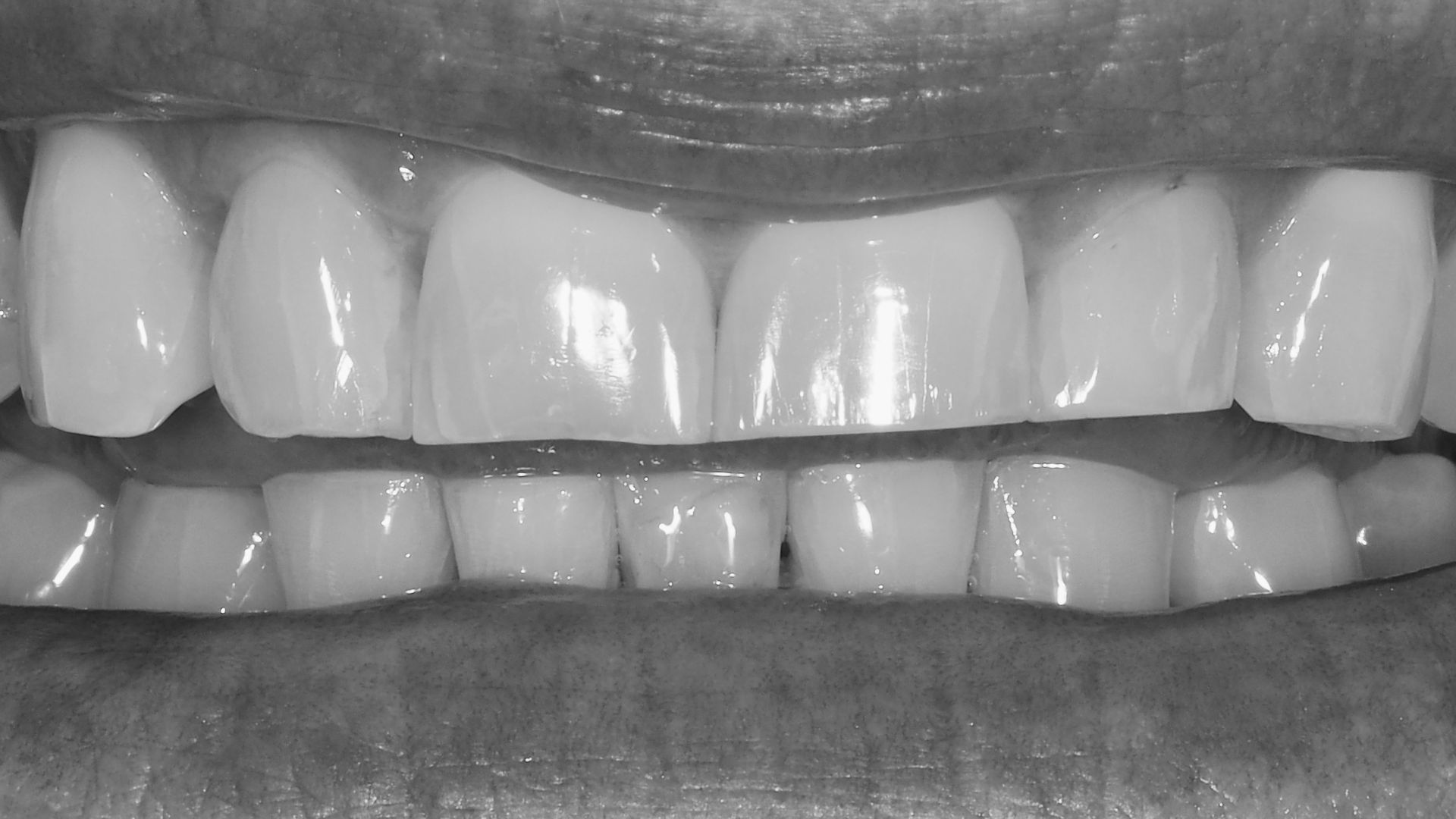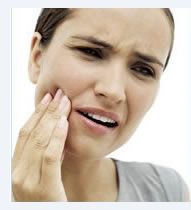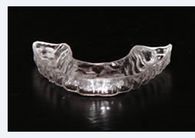Treatment of bruxism in Lugano
What is bruxism?
Bruxism is the habit of clenching, tightening or grinding the teeth. This behaviour is largely unconscious and often occurs during sleep, and particularly in periods of increased stress or tension. In some cases, it can also be present during the day, making treatment more difficult. It is a "parafunctional" behaviour precisely because it not a proper "function" of the mouth, such as other habits that are part of everyday life: chewing gum, nail- biting, lip biting, chewing pens or pencils. Most people are not even aware of these habits, yet they can cause considerable damage to the various structures of the body: teeth, mastication muscles and temporomandibular joint.

Grinding the teeth, i.e. causing the teeth to scrape or rub against each other, leads to considerable wear of the teeth, including loss of vertical size, which can have a negative effect on the appearance of the smile.Above all, bruxism leads to notable fatigue and soreness of the chewing musculature, since the muscles are not given time to relax, in particular during the night when they should be allowed to rest.This fatigue can also extend to the muscles in the neck and shoulders, giving rise to headaches on waking.


The forces that arise in episodes of bruxism also discharge on to the temporomandibular joints. These can become inflamed and painful, leading to dislocation of the articular disc with consequent dysfunction such as joint pops (clicks) when opening and closing the mouth, leading to deviations or limitation in opening movements.
In addition to nervous factors such as stress and anxiety, some medications may also cause side-effects involving muscle activity and cause bruxism. These medications include some neuroleptics and antidepressants. Regardless of the cause of bruxism, systems can help to control it and avoid, or at least reduce, the damage it causes to the various structures of the mouth.
To protect the teeth from excessive wear, the wearing of a night ferrule (Byte) is recommended.
This allows the excess forces generated on the joint to be discharged by reducing and eliminating the joint noises (clicking) and creates a relaxation of the peroral muscle tissues that cause annoying pain.


